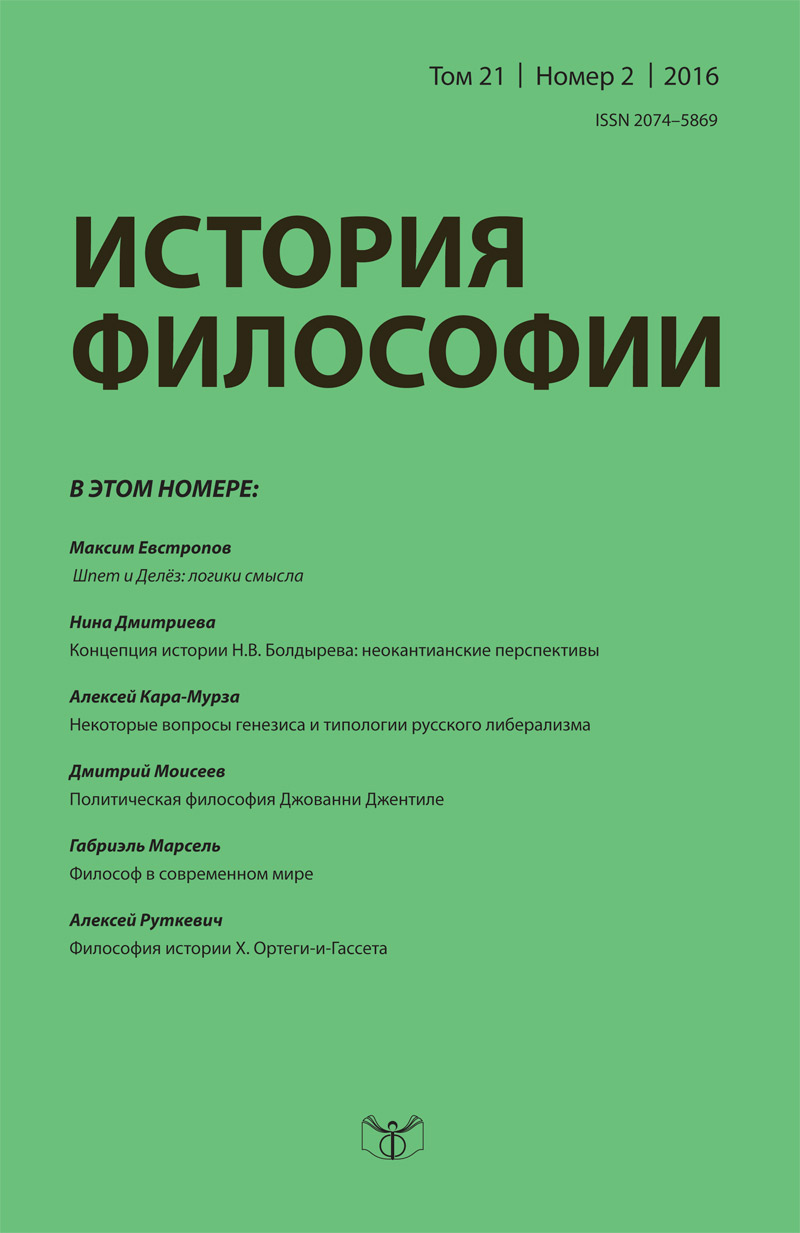Ortega y Gasset’s Philosophy of History
Keywords:
philosophy of history, historicism, hermeneutics, generation, ideas and beliefs, revolutionAbstract
Philosophy of history is an important part of J. Ortega y Gasset’s system, as it connects his
metaphysics with political philosophy, history of philosophy and aesthetics. This article considers
Ortega’s evolution from Neokantianism to phenomenology and existential analytics, his historicism
(conception of the “vital or historical reason”), compared with the historicism of other European
thinkers of the first half of the 20th century, and his doctrines of generations and modes of thinking,
succeeding one another in history. Ortega’s “metahistory” (his view that history has cycles or
“rhythms”) correlates with his “hermeneutics of the visual” in the history of art, his doctrine of
the evolution of deductive theory in the history of science, and his interpretation of revolution
in political history

